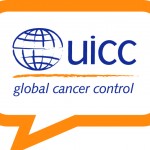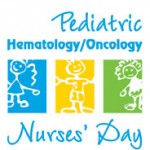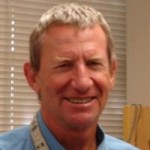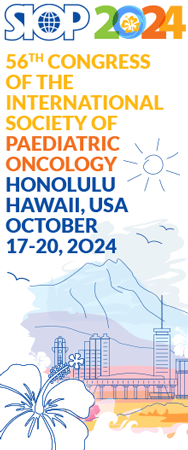
Lorem ipsum dolor sit amet, consectetur adipiscing elit. Cras imperdiet enim ac augue auctor viverra.
PROJECTS:
4
ESTABLISHED:
JUNE 15, 2013
MEMBERS:
6
COMMITTEE CHAIRS
Terms of Reference (TOR) PODC Committee of SIOP
Background:
To improve access to and care for children and adolescents with cancer is one of the basic goal of SIOP. SIOP established a PODC Committee in 1990 to develop pediatric oncology in countries with low levels of access and care. The roots of the PODC Committee go back to a symposium on PODC organized by G. Prindull and N. Gad-el Mawla at the 15th International Cancer Congress in Hamburg, August 16-22, 1990. It took 7 years to establish the actual structure of this committee: it consisted of a core committee of 10-12 members, 60-70 consultants and all the continental presidents. Over the years, the PODC has created a forum at the SIOP congresses and provided scholarships for young doctors and nurses from countries with low level pediatric oncology. It has promoted twinning projects, supported key projects in low-income countries, set standards for training and care, and defined the structure and function of Pediatric Cancer Units (PCU). PODC has also maintained contacts with other international organizations involved in pediatric oncology.
Within the last years it was realized, that a new structure is required to cope with the global role SIOP is playing now in pediatric oncology. In 2004 at Vancouver a proposal for a new organisation was discussed, approved, and submitted to the Board by the PODC Committee (SIOP NEWS 32, December 2005, p 15/16). The process of reorganisation of the PODC committee was completed at Boston in October 2010.
Vision of the PODC Committee
- All children and adolescents with cancer have access to age-adapted good care, taking into account prevalent cultural and socio-economic circumstances
- With time and depending on the level of pediatric oncology, national pediatric oncology networks should become self-sustaining
- Optimize palliative care in all countries
Role of the PODC Committee
The Committee is an integral part of SIOP. Similar to the scientific committee it is a tool of the Board with defined competences and responsibilities. The Committee‘s main objective is to develop pediatric oncology in countries with low levels of access to care and/or low standards of care. In order to remain innovative, the Committee should be open to all members who are willing to contribute.
Examples of Activities of the PODC (not an exhaustive list)
- Facilitate all efforts to develop Pediatric Cancer Units (PCU) with local pediatric oncology networks
- Facilitate the establishment of national networks for pediatric oncology
- Facilitate the establishment of population-based childhood cancer registries
- Advocate with international organizations and local governments to improve and sustain childhood cancer care
- Create training facilities for pediatric oncology specialists
- Set standards for training of specialists and standards for care and long-term follow-up
- Establish PODC fora at SIOP congresses and provide scholarships
- Facilitate interdisciplinary cooperation
- Set standards for training, pediatric cancer units, pediatric oncology nursing, data management, and other aspects of oncology care
- Cooperate with parents organisations and survivor groups
- Coordinate activities of SIOP PODC with those of other institutions and agencies (governmental and non-governmental)
- Develop fund raising and funding of projects in collaboration with the SIOP
Board, World Child Cancer, and other groups with the same mission - Provide expertise for the development of PO structures and the evaluation of their function
Structure of the PODC Committee
- Membership in the PODC Committee will be open to all SIOP members and non-members who share the mission.
- SIOP should provide structures for those willing to work for PODC.
- The basic element of these structures would be working groups (WGs).
- 12 Working Groups have been established to promote important topics such as funding, drug accessibility, childhood cancer warning signs, treatment guidelines, twinning, education, communication etc. In general, a maximum of 12 WG’s may operate at any given time.
- Membership in the Working Groups is open, but convenors of the Groups must be SIOP members. Members of Working Groups are called PODC consultants.
- Each working group will elect their own working group leaders or Convenors, who can hold a maximum of 2 terms of 3 years each.
- The Convenors of these groups form the PODC Core committee, together with the continental presidents, representatives of the Board, Continental Presidents, and other organisations (e.g. IPSO, nurses, parents, others).
- The core committee is a flexible steering instrument innovated by the influx of new & active working group leaders.
- All Convenor/s will have to report each year to the core committee on the activities of their group.
- The activity of the WGs should be supervised and evaluated by the Core Committee annually.The core committee may decide to add or discontinue working groups based on the priorities and activities of the WG’s.
- The Core committee will lay down rules on how to run the committee.
- The Core committee will elect the PODC Chairperson(s) of the committee for a period of 3 years. This term of the Chairperson may be renewed for a maximum of one more term of 3 years.
- Continental PODC working groups could liaise with SIOP topic-oriented PODC working groups.
- All working groups and the core committee will direct their efforts towards the implementation of the main goals.
- The core committee should define parameters for the evaluation of the status of pediatric oncology (PO) in limited-resource countries (LRCs)
- Together with the continental presidents the core committee should periodically evaluate the status of PO in LRCs.
- Based on these evaluations the core committee should develop strategies to translate the visions of SIOP.
- PODC Core Committee will meet at least once a year during the annual congress of SIOP and review the progress of its activities and evaluate the impact. A report will be sent to the SIOP Board before its meetings.
Composition of the Working Groups (12 WG’s as decided at SIOP 2010)
- Advocacy: Chair of SIOP Advocacy Task Force + Convenor
- Education & Training: Chair of SIOP Education Task Force + Convenor
- Parent support systems: ICCCPO representative + Convenor
- Nursing: Nursing representative + Convenor
- Other WG’s: 2 Convenors each in general
- PODC task forces may be constituted at the discretion of the PODC leadership to accomplish specific tasks (e.g. outcome evaluation task force established 10/29/11 and headed by C. Lam, M. Scopinaro, M. Sullivan)
PODC Activities in the SIOP Annual Meeting
- Day -2 will be the open Core Committee meeting
- Day -1 will be devoted to 4 sessions of PODC presentations and discussions
- Day +3 Symposium will include PODC activities of interest to the entire SIOP membership
- Keynote lectures related to PODC topics may be proposed to the Scientific Committee 2 years in advance and will be evaluated based on standard selection criteria
- Day +3 afternoon will be open for special proposals and projects, which would require their own chairs, funding, and organizational logistics.
I am text block. Click edit button to change this text. Lorem ipsum dolor sit amet, consectetur adipiscing elit. Ut elit tellus, luctus nec ullamcorper mattis, pulvinar dapibus leo.
I am text block. Click edit button to change this text. Lorem ipsum dolor sit amet, consectetur adipiscing elit. Ut elit tellus, luctus nec ullamcorper mattis, pulvinar dapibus leo.

COMMITTEE
NAME

COMMITTEE
NAME





